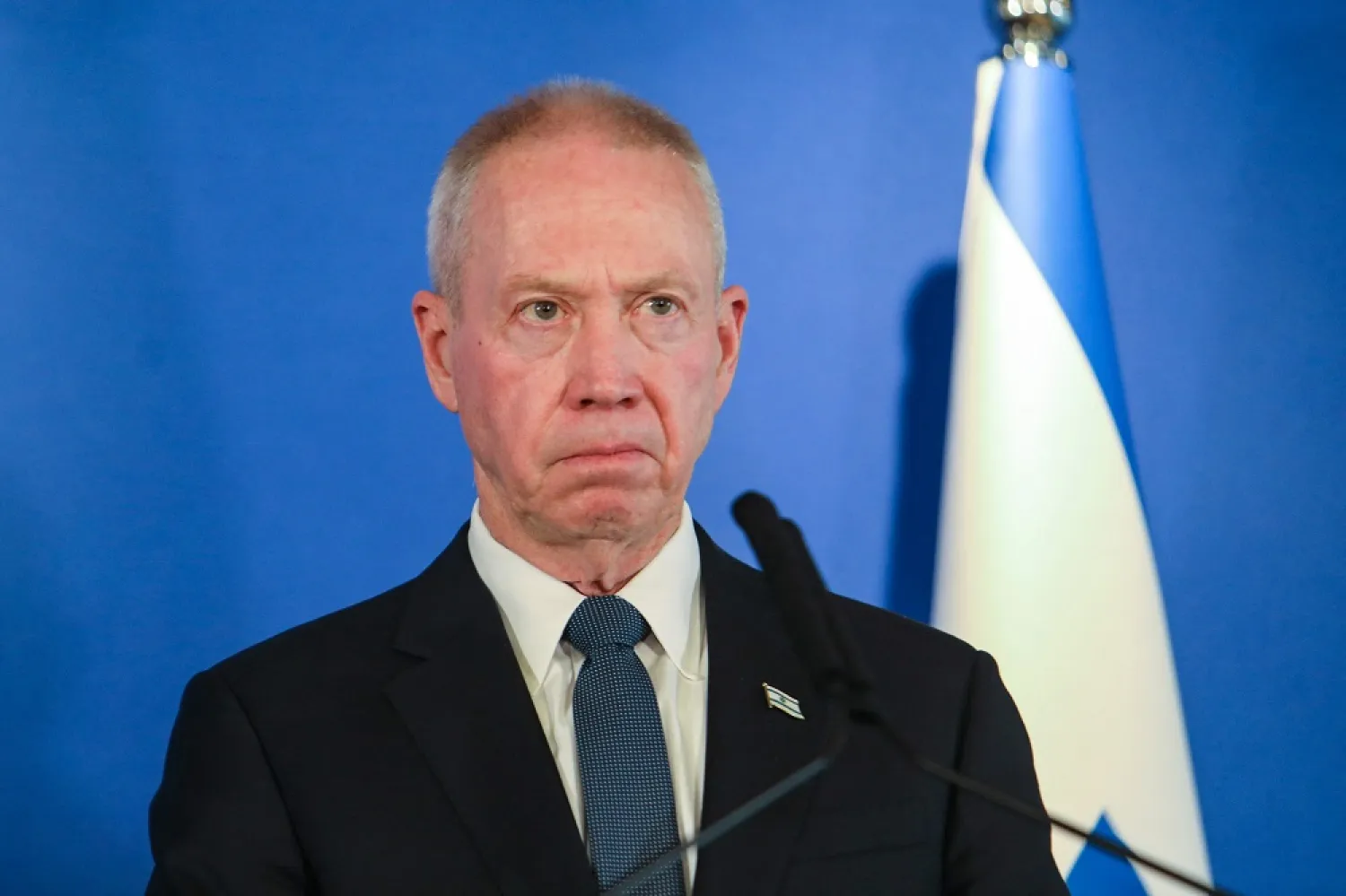Five days ago, Israeli Prime Minister Benjamin Netanyahu's decision to fire his defense minister set off a wave of spontaneous mass protests and a general strike that threatened to paralyze the country, forcing the Israeli leader to suspend his divisive plan to overhaul the judicial system.
But Netanyahu never even sent Israeli Defense Minister Yoav Gallant a formal termination letter, a spokesperson for Netanyahu said. As of Friday, Gallant — whose criticism of Netanyahu's planned judicial changes led to his dismissal — was still on the job. Gallant's aides said it was business-as-usual at the Defense Ministry.
As local media this week crackled with reports of Netanyahu considering whether to replace Gallant with stalwarts of his right-wing Likud party, Gallant remained in limbo — and even so, the public face of his ministry.
He greeted the Azerbaijani foreign minister, toured two military bases and attended Tuesday's security cabinet meeting this week. On Thursday, Gallant attended a celebration ahead of the Jewish Passover holiday with the director of the Shin Bet security service, his office said, releasing a photo of him smiling beside Director Ronen Bar.
“We have a duty to calm the spirits in Israeli society and maintain an inclusive and unifying discourse," Gallant said at the holiday toast.
The questions swirling around the fate of Israel's crucial Defense Ministry — which maintains Israel's 55-year-old military occupation of the West Bank and contends with threats from Iran, Lebanon's Hezbollah group and the Gaza Strip's Hamas rulers — reflects the tensions tearing at Netanyahu's right-wing coalition after one of the most dramatic weeks for Israel in decades.
It's also a leadership test of Israel's longest-serving premier as he governs a deeply polarized country and faces charges of corruption.
Netanyahu's decision to pause plans to weaken Israel's Supreme Court in the face of the country's biggest protest movement underscores the complex juggling act that the prime minister must perform in holding together his governing coalition, experts say.
On the one hand, Netanyahu must please his far-right and religiously conservative coalition partners — supporters of the judicial overhaul — who vaulted him to power even as he stands trial.
But he also must weigh grave concerns over the plan from Israel's closet ally, the United States, as well as anger from more moderate politicians and, significantly, dissent from within Israel's military over fears the national crisis could threaten the country's security. A growing number of military reservists had declined to report for duty in protest of the measures, raising concerns that the crisis could harm Israel’s military capabilities.
Netanyahu’s office declined to comment further on Gallant's unresolved situation. But the conflicting pressures have resulted in an impasse over Gallant's future and who serves as defense minister.
“Netanyahu has extremists surrounding him and they want to see blood, they want to see Gallant removed," said Gayil Talshir, a political scientist at the Hebrew University of Jerusalem.
Those politicians include far-right National Security Minister Itamar Ben-Gvir and Finance Minister Bezazel Smotrich, who received outsized power in coalition deals that persuaded them to join the government.
But as the first senior Likud official to break ranks over the judicial overhaul, Gallant has proven himself to be “someone who is more concerned about the national interest than the personal interest of Netanyahu," Talshir added.
Officially firing and replacing him could trigger backlash not only from tens of thousands of Israeli protesters taking to the streets weekly and from Israel's already unnerved military officials, but also from the Biden administration, she said.
The US, which gives Israel a more-than-$3 billion annual assistance package and diplomatic backing in international forums, has expressed misgivings about Netanyahu's efforts to change the Israeli judicial system. President Joe Biden's blunt criticism of the overhaul this week — even after Netanyahu's decision to halt it — led to a rare open dispute between the allies.
“The Biden administration saw Gallant as someone dependable, someone they can work with,” said Ehud Yaari, an Israel-based analyst for the Washington Institute for Near East Policy.
The judicial plan would give the embattled Netanyahu and his allies the final say in appointing the nation’s judges. It would also give parliament, which is controlled by his allies, authority to overturn Supreme Court decisions and limit the court’s ability to review laws. Critics say the plan would irreparably weaken Israel’s system of checks and balances and lead the country toward autocracy.
As Netanyahu met this week with potential alternatives to Gallant, such as Economy Minister Nir Barkat, Israeli media reported a flurry of proposals that would allow Gallant to stay on — including that he offer a public apology, or remain as defense minister but resign from parliament and forfeit his ability to vote against the overhaul.
But on Friday it appeared Gallant and Netanyahu had still not reached an agreement.
“At the bottom of all this is the realization by (Netanyahu) and most of the Likud that firing Gallant was a huge mistake," said Yaari. “Netanyahu is trying to stay above water, but he cannot really swim.”
















